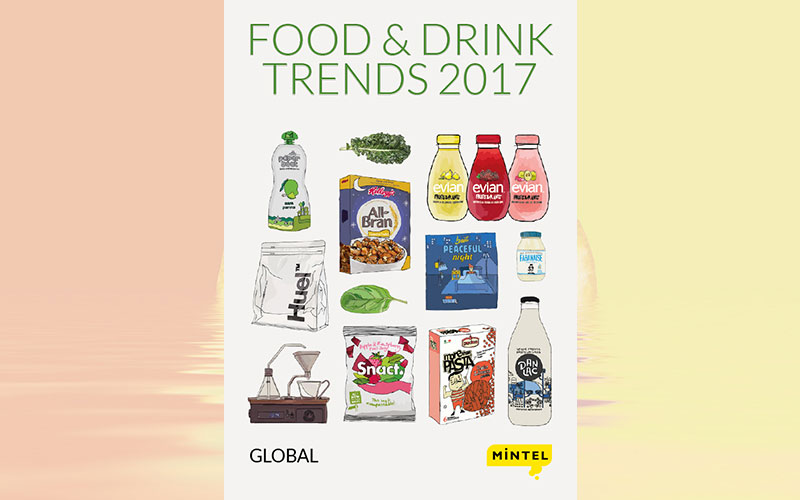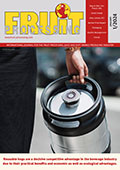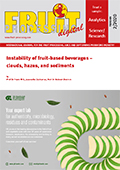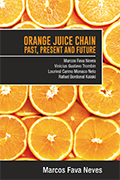Healthy lifestyles a growing focus for consumers in Southeast Asia: 75 % of Indonesian consumers aim to have a healthier diet in 2017
The growing appeal of leading healthy lifestyles has made its way to consumers in Southeast Asia and it seems the cornerstone of maintaining this is by following a healthy diet and exercise regime.

The growing appeal of leading healthy lifestyles has made its way to consumers in Southeast Asia and it seems the cornerstone of maintaining this is by following a healthy diet and exercise regime.
Indeed, new research from global market intelligence agency Mintel reveals that as many as three in four (75 %) metro consumers in Indonesia and two in three (66 %) metro consumers in Thailand say they aim to have a healthier diet in 2017*. Additionally, 58 % of metro Indonesians and 62 % of metro Thais say that they will definitely exercise more in 2017.
One of the key ways in which consumers in Southeast Asia are looking to adopt a healthy and balanced diet is by consuming food and drink that is high in protein. Indeed, there has been an increased interest in protein offering across the region. Mintel research shows that 64 % of metro consumers in Indonesia and Thailand respectively say that as part of their daily diets, they prefer to get their protein from foods that are naturally high in protein. Reflecting a growth in interest in protein consumption in Southeast Asian consumers’ daily diets, this figure (64 %) is a rise from 37 % of metro Indonesians and 41 % of metro Thais who said the same last year**.
Brands and companies have taken notice of this trend, however, innovation in Asia Pacific is falling behind; data from Mintel Global New Products Database (GNPD) found that in the two years leading to July 2017***, there was a 26 % increase in the number of global food and drink launches carrying a ‘high/added protein’ claim. Comparatively, Asia Pacific saw a 5 % growth in the number of food and drink launches with a ‘high/added protein’ claim in the same time period.
Jane Barnett, Head of Insights, South APAC, at Mintel said:
“Improving health and fitness is now a key focus of consumers across Southeast Asia, particularly through their diets and exercise. Consumers in the region show continuous interest in proteins and are incorporating more of them into their daily diets and eating regimes. Much of this growth in demand is attributable to consumer belief that protein aids in the pursuit or maintenance of a healthy physique, and provides them with energy and satiety. While brands in Asia Pacific have taken notice of this interest, there is still more room for innovation within the region.”
According to Mintel research, 47 % of metro Thai consumers think that high protein food or drink assists with building muscle, while 37 % of metro Indonesians think that high protein offerings help in managing weight. Furthermore, just over two in five consumers in urban Indonesia (42 %) and Thailand (41 %) feel that high protein food or drink provides them with long-lasting energy, while four in 10 (40 %) metro Thais think that these offerings help them to feel fuller for longer.
Meanwhile, the aspiration to be healthy among consumers has also made its way into the beauty and personal care industry with launches that target niche sporting activities, giving rise to Mintel’s 2017 Global Beauty and Personal Care Trend, ‘Active Beauty’.
Mintel research finds that 58 % of metro Thais and 63 % of metro Indonesians believe that regular exercise is important for a healthy lifestyle. As consumers recognise the importance of staying active, beauty and personal care brands are formulating products to help them in their quest for health and fitness. According to Mintel GNPD, the number of global skincare products launched featuring the word “sweat” in the product description grew by 30 % between 2015 and 2016, while the number of these launches in the colour cosmetics category grew by a significant 81 % in the same time frame.
“The perception of Active Beauty within Asia first started out, and is still very much, centred on suncare. However, as sports and fitness activities move indoors, this segment will move beyond sun protection. While still a niche market in Asia and globally, there is definite growth opportunities for active beauty brands and products in Southeast Asia, especially as consumers continue to recognise the benefits of staying active.” Jane continues.
Aside from achieving a healthy body, it seems that it is also the mind that consumers in Southeast Asia are keen to look after. Over three in five (61 %) of metro Thai consumers believe that maintaining a positive mental state is an important factor to leading a healthy lifestyle.
“While there have been a couple of products across Southeast Asia’s sports, energy, and lifestyle beverage space that talk about the ‘mind and body’, there is definitely still space for brands and companies to expand into this area. Globally, we see a growing rate of products that aim to provide more of a holistic approach, incorporating a beneficial nutritional profile, as well as either enhancing a consumer’s mood or providing the elements needed to keep the mind sharp and focused.” Jane concludes.
*Polled in June 2017
**Polled in June 2016
***August 2014 to July 2017









